Vestibular nerve damage is a condition that affects the function of the vestibular nerve, a crucial component of the inner ear responsible for maintaining our balance and spatial orientation. This condition can be caused by various factors, and understanding its causes, symptoms, diagnosis, treatment options, and preventive measures is vital in managing its impact on individuals’ lives.
Understanding Vestibular Nerve Damage
Vestibular nerve damage refers to the impairment or dysfunction of the vestibular nerve, which connects the inner ear to the brainstem. This nerve plays a critical role in transmitting sensory information related to balance and spatial perception to the brain. When damaged, it can lead to various physical and cognitive symptoms that significantly impact an individual’s quality of life.
Definition of Vestibular Nerve Damage
Vestibular nerve damage occurs when there is damage or disruption to the vestibular nerve fibers. These fibers transmit signals from the semicircular canals and otolith organs in the inner ear to the brain. Without proper functioning of the vestibular nerve, the brain struggles to accurately interpret the body’s position and movement in space.
When the vestibular nerve is damaged, individuals may experience a range of symptoms. These can include dizziness, vertigo, imbalance, and problems with coordination. The severity of these symptoms can vary from person to person, with some individuals experiencing mild symptoms while others may have more significant impairments.
In addition to physical symptoms, vestibular nerve damage can also have cognitive and emotional effects. Some individuals may experience difficulty concentrating, memory problems, and increased anxiety or depression. These psychological symptoms can further impact an individual’s overall well-being and ability to perform daily activities.
The Role of the Vestibular Nerve in the Body
The vestibular nerve is essential for maintaining balance and coordinating eye movements with head motion. It is responsible for detecting changes in head position, linear acceleration, and rotational movements. Through its connection with the brainstem and other parts of the central nervous system, the vestibular nerve helps us maintain equilibrium and respond appropriately to changes in our environment.
When the vestibular nerve is functioning properly, it sends signals to the brain about the body’s position and movement. These signals are then used by the brain to adjust muscle activity and maintain balance. For example, if you tilt your head to the side, the vestibular nerve detects this change and sends signals to the brain, which in turn adjusts the position of your eyes and activates the appropriate muscles to keep you balanced.
In addition to balance, the vestibular nerve also plays a crucial role in coordinating eye movements with head motion. This coordination is essential for clear vision and the ability to focus on objects while moving. When the vestibular nerve is damaged, individuals may experience problems with gaze stability, making it difficult to read or focus on objects while in motion.
Furthermore, the vestibular nerve is interconnected with other parts of the central nervous system, including the cerebellum and the visual and proprioceptive systems. This interconnectedness allows for the integration of sensory information from various sources, enabling us to have a comprehensive understanding of our body’s position in space.
In conclusion, the vestibular nerve is a vital component of our sensory system, responsible for maintaining balance, coordinating eye movements, and providing spatial perception. When damaged, it can lead to a range of physical, cognitive, and emotional symptoms that can significantly impact an individual’s daily life. Understanding vestibular nerve damage is crucial for developing effective treatments and interventions to improve the quality of life for those affected.
Causes of Vestibular Nerve Damage
Vestibular nerve damage can be caused by various factors, including infections, trauma, and certain diseases. Understanding the underlying causes is crucial in both preventing and managing this condition effectively.
Infections and Vestibular Nerve Damage
Infections, such as viral labyrinthitis or bacterial vestibular neuritis, can lead to inflammation and damage to the vestibular nerve. These infections often result in vertigo, dizziness, and loss of balance. Prompt medical attention and appropriate treatment are essential to minimize the damage caused by these infections and facilitate recovery.
In viral labyrinthitis, a viral infection affects the labyrinth, which is the inner ear structure responsible for balance and hearing. The infection causes inflammation and disrupts the normal functioning of the vestibular nerve. This can result in severe vertigo, nausea, and difficulty maintaining balance.
Bacterial vestibular neuritis, on the other hand, is caused by a bacterial infection that affects the vestibular nerve directly. The bacteria invade the nerve and cause inflammation, leading to symptoms such as dizziness, unsteadiness, and a feeling of being off-balance.
Trauma and Its Impact on the Vestibular Nerve
Trauma to the head or neck can also result in vestibular nerve damage. Injuries from falls, car accidents, or sports-related incidents can disrupt the delicate structures of the inner ear, including the vestibular nerve. Symptoms of vestibular nerve damage resulting from trauma may include dizziness, imbalance, and difficulties with coordination and spatial perception.
Head injuries, such as concussions, can cause a direct impact on the vestibular nerve. The force from the injury can damage the nerve fibers, leading to a disruption in the transmission of signals between the inner ear and the brain. This can result in a range of symptoms, including vertigo, difficulty walking, and problems with eye movements.
Neck injuries, such as whiplash, can also affect the vestibular nerve. The sudden jerking motion of the head can strain the delicate structures of the inner ear, leading to inflammation and damage to the nerve. This can cause symptoms such as dizziness, unsteadiness, and a sensation of spinning.
Diseases that Can Lead to Vestibular Nerve Damage
Various medical conditions can contribute to vestibular nerve damage. These may include Ménière’s disease, vestibular schwannoma (a benign tumor), or multiple sclerosis. These conditions cause damage to the vestibular nerve either directly or indirectly, leading to a range of symptoms that significantly affect an individual’s daily life.
Ménière’s disease is a chronic condition that affects the inner ear and can lead to vestibular nerve damage. The exact cause of Ménière’s disease is unknown, but it is believed to be related to fluid buildup in the inner ear. This fluid imbalance can cause episodes of severe vertigo, hearing loss, and tinnitus (ringing in the ears).
Vestibular schwannoma, also known as acoustic neuroma, is a benign tumor that develops on the vestibular nerve. As the tumor grows, it can put pressure on the nerve, leading to damage. Symptoms of vestibular schwannoma may include dizziness, hearing loss, and problems with balance and coordination.
Multiple sclerosis (MS) is a chronic autoimmune disease that can affect the central nervous system, including the vestibular nerve. In MS, the immune system mistakenly attacks the protective covering of nerve fibers, leading to inflammation and damage. This can result in a wide range of symptoms, including dizziness, imbalance, and difficulties with coordination.
Symptoms of Vestibular Nerve Damage
Vestibular nerve damage can manifest through a variety of physical and cognitive symptoms. These symptoms can significantly impact an individual’s ability to function at work, home, and in social situations.
Physical Symptoms
Physical symptoms of vestibular nerve damage may include vertigo, dizziness, imbalance, difficulty walking, and a feeling of unsteadiness. Some individuals may experience nausea, vomiting, and sensitivity to certain visual stimuli. These symptoms can be both debilitating and distressing, affecting one’s overall well-being.
Vertigo, one of the most common physical symptoms of vestibular nerve damage, is characterized by a spinning sensation. It can be triggered by simple movements, such as turning the head or getting out of bed. The intense dizziness and disorientation caused by vertigo can make it difficult for individuals to perform everyday activities, such as driving or even walking on uneven surfaces.
Dizziness, another physical symptom, is often described as a lightheaded or faint feeling. It can occur spontaneously or be triggered by certain movements or positions. The sensation of dizziness can be accompanied by a loss of balance, making it challenging for individuals to maintain their stability and coordination.
Imbalance and difficulty walking are also common physical symptoms experienced by individuals with vestibular nerve damage. The damaged vestibular nerve affects the brain’s ability to process information related to balance and spatial orientation, leading to a sense of unsteadiness. This can make it challenging for individuals to walk in a straight line or navigate through crowded spaces.
Furthermore, some individuals may experience nausea and vomiting as a result of vestibular nerve damage. The constant feeling of motion and imbalance can trigger an upset stomach, leading to bouts of nausea and, in severe cases, vomiting. Additionally, sensitivity to certain visual stimuli, such as busy patterns or flashing lights, can exacerbate these symptoms.
Cognitive Symptoms
In addition to physical symptoms, cognitive symptoms, including difficulty concentrating, memory problems, and brain fog, may be present in individuals with vestibular nerve damage. These cognitive impairments can significantly impact an individual’s ability to perform tasks that require focus and mental clarity.
Difficulty concentrating is a common cognitive symptom experienced by individuals with vestibular nerve damage. The constant sensation of dizziness and imbalance can make it challenging for individuals to stay focused on a task for an extended period. This can affect their productivity at work or their ability to engage in conversations or social interactions.
Memory problems are another cognitive symptom that can arise from vestibular nerve damage. The brain fog caused by the damaged vestibular nerve can interfere with an individual’s ability to recall information or remember recent events. This can be frustrating and lead to difficulties in daily life, such as forgetting appointments or struggling to follow conversations.
Brain fog, a term used to describe a feeling of mental cloudiness or confusion, is also commonly reported by individuals with vestibular nerve damage. The constant struggle to maintain balance and stability can take a toll on cognitive function, leading to a sense of mental fog. This can make it difficult for individuals to think clearly or make decisions, further impacting their overall well-being.
In conclusion, vestibular nerve damage can cause a range of physical and cognitive symptoms that can significantly impact an individual’s daily life. From vertigo and dizziness to difficulty concentrating and memory problems, these symptoms can be both distressing and debilitating. Seeking appropriate medical care and support is crucial for managing and improving the quality of life for individuals with vestibular nerve damage.
Diagnosis of Vestibular Nerve Damage
Accurate diagnosis is crucial in identifying and managing vestibular nerve damage. Medical professionals employ various techniques to assess and evaluate the extent of the damage, enabling them to develop an appropriate treatment plan and recommend suitable interventions.
When it comes to diagnosing vestibular nerve damage, medical history and physical examination play a significant role. During the diagnostic process, medical professionals will delve into the individual’s medical history, meticulously analyzing any previous head injuries or underlying medical conditions that may have contributed to the damage. This comprehensive understanding of the patient’s medical background aids in formulating an accurate diagnosis and determining the most effective course of treatment.
Furthermore, a thorough physical examination is conducted to assess various aspects related to vestibular function. This examination may involve evaluating the individual’s balance and coordination, observing their eye movements, and assessing any signs of dizziness or vertigo. By carefully observing these physical indicators, medical professionals can gather valuable insights into the extent of the vestibular nerve damage.
Diagnostic Tests for Vestibular Nerve Damage
In addition to medical history and physical examination, additional diagnostic tests may be required to confirm vestibular nerve damage and identify its underlying causes. These tests serve as invaluable tools in providing a comprehensive understanding of the condition and guiding the treatment process.
Hearing tests are commonly employed to assess the auditory function and identify any potential hearing loss associated with vestibular nerve damage. By examining the individual’s ability to perceive various sound frequencies, medical professionals can gain insights into the extent of the damage and its impact on hearing abilities.
Vestibular function tests, such as electronystagmography (ENG) or videonystagmography (VNG), are also utilized to evaluate the function of the vestibular system. These tests involve monitoring eye movements in response to specific stimuli, allowing medical professionals to assess the integrity of the vestibular nerve and its connection to the brain. By analyzing the patterns of eye movements, medical professionals can detect any abnormalities or irregularities that may indicate vestibular nerve damage.
Imaging studies, such as magnetic resonance imaging (MRI) or computed tomography (CT) scans, may also be recommended to further investigate the underlying causes of vestibular nerve damage. These imaging techniques provide detailed visualizations of the inner ear and surrounding structures, enabling medical professionals to identify any anatomical abnormalities or lesions that may be contributing to the damage.
By combining the information gathered from medical history, physical examination, and diagnostic tests, medical professionals can develop a comprehensive understanding of the vestibular nerve damage. This detailed assessment allows them to tailor the treatment plan to the individual’s specific needs, ensuring optimal management of the condition and improved quality of life.
Treatment Options for Vestibular Nerve Damage
Effective management of vestibular nerve damage involves a comprehensive approach that considers the individual’s specific symptoms and underlying causes. Treatment options may range from medication to surgical interventions and rehabilitation therapies.
Medication and Vestibular Nerve Damage
Medication may be prescribed to alleviate specific symptoms associated with vestibular nerve damage. Anti-vertigo medications, such as antihistamines or benzodiazepines, can help reduce dizziness and vertigo. However, it is important to consult with a healthcare professional before starting any medication regimen, as individual needs can vary.
Surgical Interventions
In some cases, surgical interventions may be necessary to address the underlying causes of vestibular nerve damage. These may include procedures to remove tumors, repair inner ear structures, or restore the function of the vestibular nerve. Surgical options should be carefully considered and discussed with a specialist.
Rehabilitation Therapies
Rehabilitation therapies play a crucial role in managing vestibular nerve damage and improving an individual’s overall functionality. These therapies may involve vestibular rehabilitation exercises, balance training, and visual-vestibular integration techniques. A trained healthcare professional can design customized rehabilitation programs tailored to meet the specific needs of each individual.
Prevention of Vestibular Nerve Damage
While it may not always be possible to prevent vestibular nerve damage, certain lifestyle changes and proactive measures can help reduce the risk and severity of the condition.
Lifestyle Changes to Prevent Vestibular Nerve Damage
Adopting a healthy lifestyle that includes regular exercise, a balanced diet, and adequate sleep can contribute to overall well-being and potentially reduce the risk of developing vestibular nerve damage. Managing stress levels, avoiding smoking, and limiting alcohol consumption are also important in maintaining a healthy vestibular system.
Regular Check-ups and Early Detection
Regular check-ups with healthcare professionals, including audiologists and otolaryngologists, are essential in detecting any early signs of vestibular nerve damage. Early detection allows for timely intervention and appropriate management strategies. It is crucial to seek medical attention if experiencing persistent vertigo, imbalance, or any other concerning symptoms.
Living with Vestibular Nerve Damage
Living with vestibular nerve damage can be challenging, but with the right support systems and coping mechanisms, individuals can effectively manage their symptoms and enjoy a good quality of life.
Coping Mechanisms and Support Systems
Developing coping mechanisms and seeking support from healthcare professionals, family, and friends is essential for individuals living with vestibular nerve damage. Strategies such as relaxation techniques, mindfulness practices, and joining support groups can help individuals better navigate the challenges posed by this condition.
Long-term Prognosis and Quality of Life
It is important to note that the long-term prognosis for individuals with vestibular nerve damage varies depending on the underlying causes and individual circumstances. While some individuals may experience significant improvements over time, others may continue to manage persistent symptoms. Working closely with healthcare professionals and following recommended treatment plans allows for ongoing monitoring and adjustments tailored to individual needs.
In conclusion, understanding the causes, symptoms, diagnosis, treatment options, and preventive measures for vestibular nerve damage is crucial for managing this condition effectively. Seeking medical attention and guidance from healthcare professionals is essential to ensure timely and appropriate care. By adopting a comprehensive approach that incorporates medication, surgical interventions, rehabilitation therapies, and lifestyle changes, individuals can effectively manage their symptoms and improve their overall quality of life.




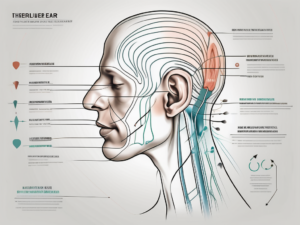
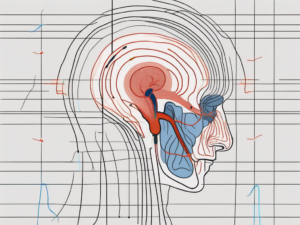
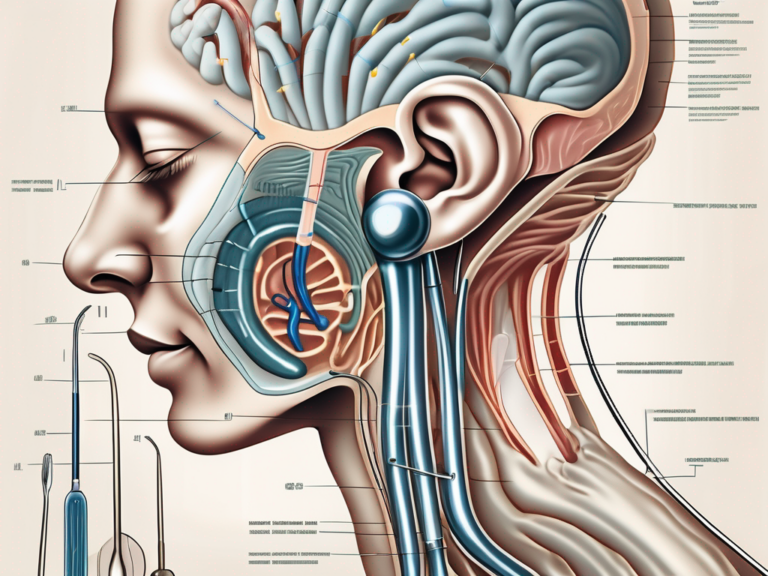
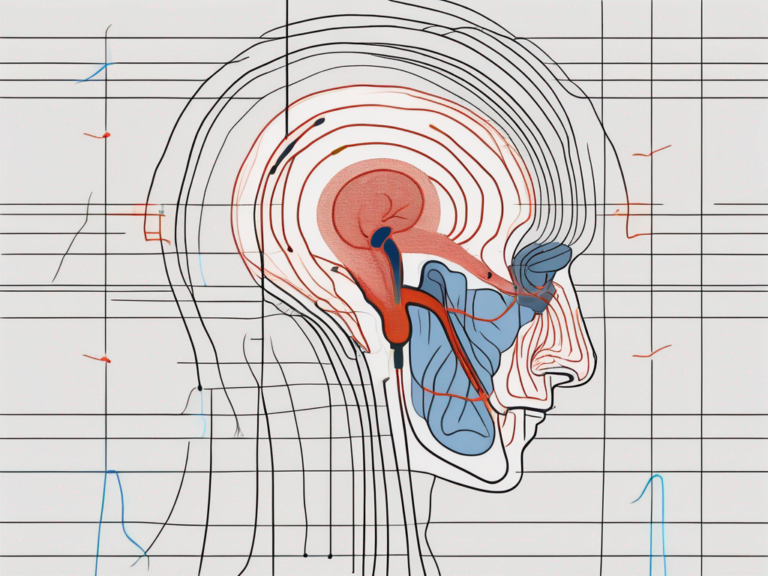
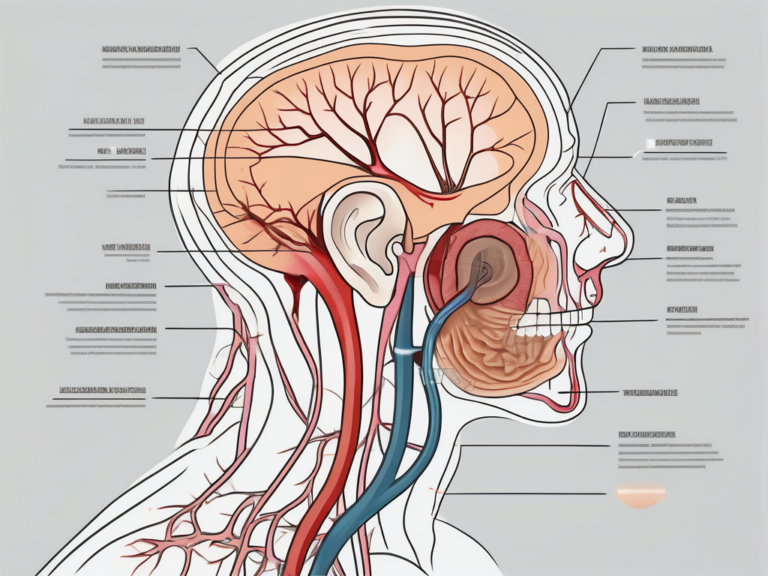
+ There are no comments
Add yours